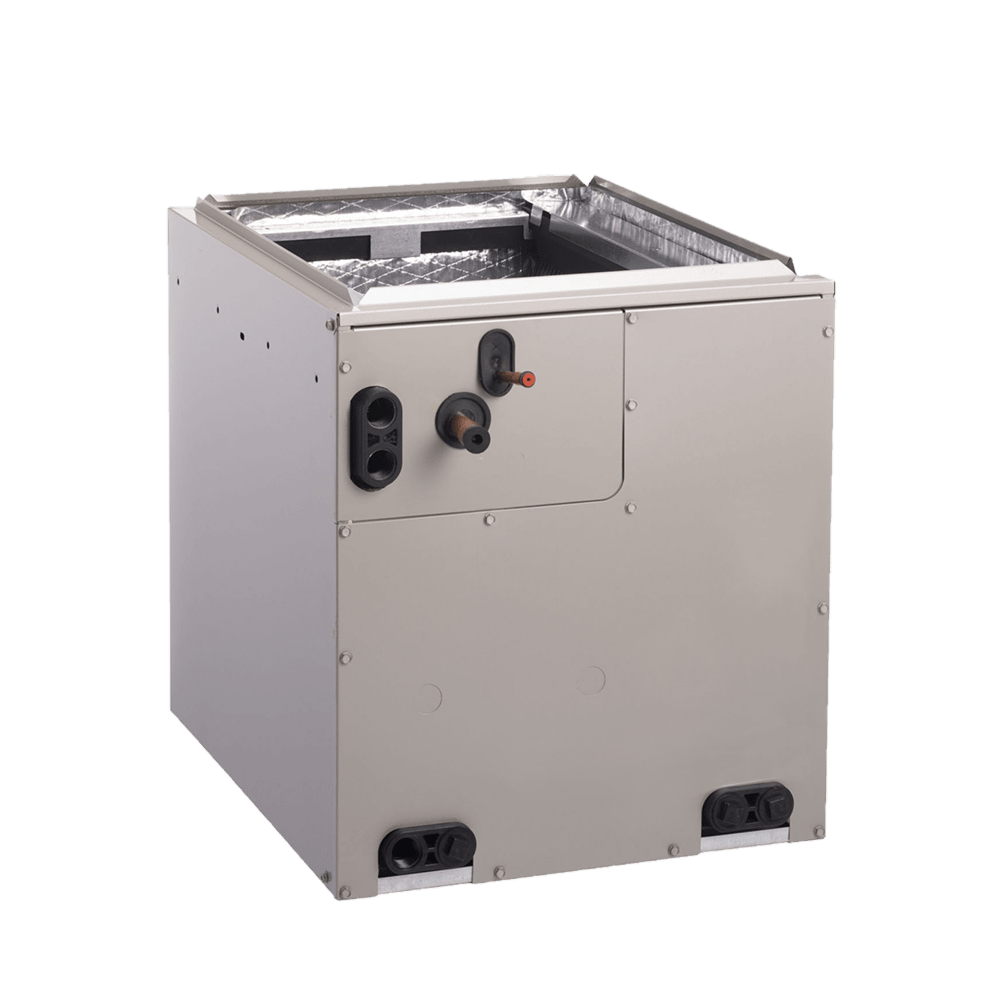WHAT IS AN EVAPORATOR COIL?
By Travis Baugh
An evaporator coil, sometimes referred to as an evap coil, is the part of your HVAC system that removes heat from the air using a refrigerant that runs through copper tubing. It is located near the furnace, which circulates cool air into your home when air conditioning.
What Do Evaporator Coils Do?
Refrigerant enters the evaporator coil through copper tubing that is connected to your outdoor unit. Once inside, it then absorbs heat from the air blowing over it. Moisture in that air is condensed into water on the coils, which then flows into the drain pan. This is an important step in the process because by removing this moisture, it lowers the temperature of the air that is blown into your home, creating a more comfortable environment.
The now-warm refrigerant flows to the outdoor unit, and the heat is expelled to the outdoor air. The refrigerant then travels back inside to the evaporator coil to repeat the process.
Overall, evaporator coils are a key component in the refrigeration process of air conditioning systems, responsible for cooling and dehumidifying indoor air before it is distributed throughout the home.
Where Is The Evaporator Coil Located?
- Fan Coil Unit: In systems where the fan coil is a standalone unit, the evaporator coil is housed inside the fan coil cabinet. This unit is usually located in a utility closet, basement, attic, or sometimes within a dedicated mechanical room.
- Furnace: In systems where the air conditioner shares the same air handler as the furnace (common in central HVAC systems ), the evaporator coil is installed inside the furnace cabinet, above or below the furnace heat exchanger.
- Ductwork: The evaporator coil is positioned within the main ductwork immediately downstream of the air handler or furnace, where it can effectively cool the air flowing through the ducts before it reaches the living spaces.

Connect With A Carrier Dealer On The Best AC Evaporator Coil For Your Home
Frequently Asked Questions About Evaporator Coils
Explore Carrier Evaporator Coils
A Carrier evaporator coil enhances the efficiency of your HVAC system by optimizing the heat exchange, ensuring consistent cooling performance. Designed for durability and reliability, Carrier coils help maintain indoor comfort while reducing energy consumption. Their precision-engineered construction ensures a longer lifespan and helps protect other components of your air conditioning system, maximizing overall system efficiency. Explore Carrier's line of evaporator coils today.






